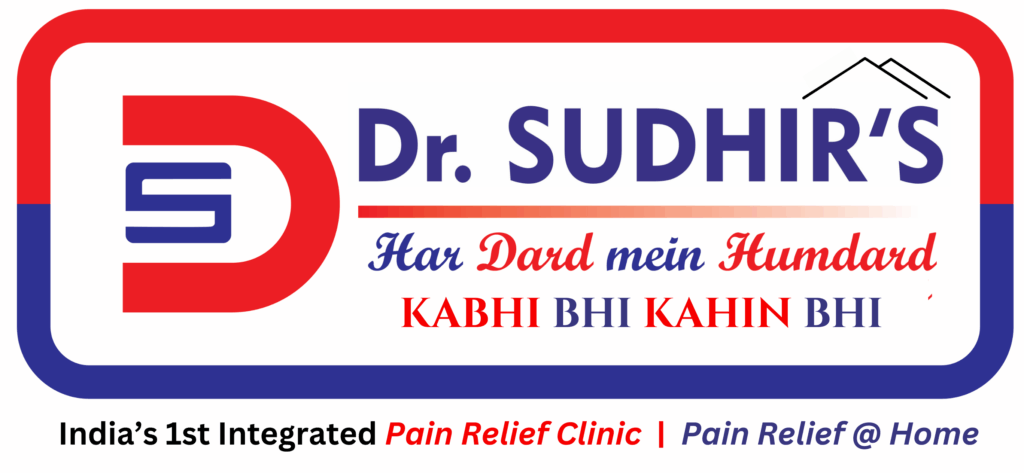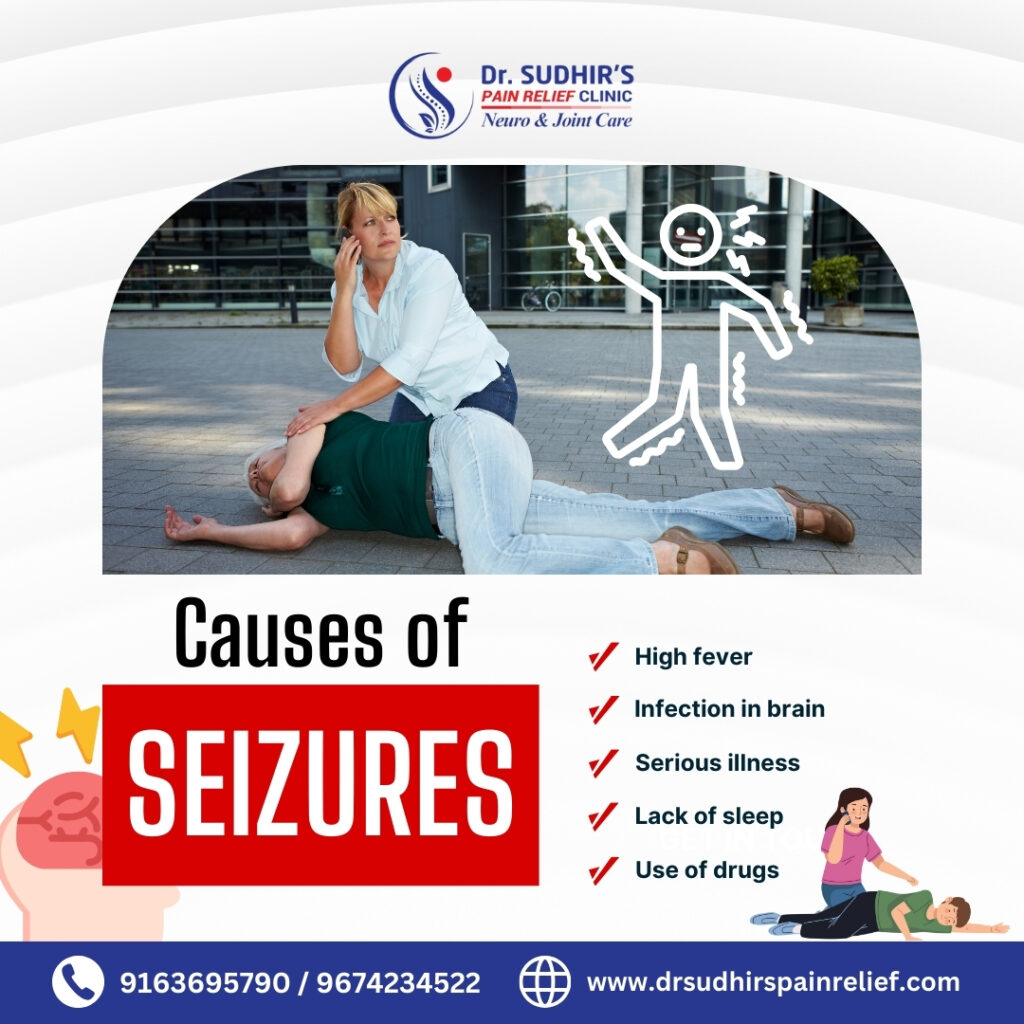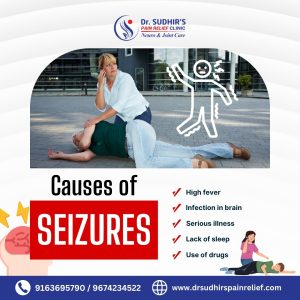Epileptic seizures are sudden, involuntary bursts of electrical activity in the brain, leading to symptoms such as convulsions, loss of consciousness, abnormal sensations, or repetitive movements. Their severity and type depend on the specific area of the brain affected.
epileptic seizures- Causes & Diagnosis
Epileptic seizures can be caused by various factors that disrupt normal brain activity. Some common causes include:
- Family history of epilepsy
- Inherited neurological disorders
- Traumatic brain injury (TBI)
- Stroke or reduced oxygen to the brain
- Brain tumors or cysts
- Congenital brain malformations
- Alzheimer’s disease
- Neurodegenerative disorders
- Developmental disorders (e.g., autism, neurofibromatosis)
- Meningitis or encephalitis
- HIV/AIDS or other immune-related conditions
- High fevers (especially in children, leading to febrile seizures)
- Low blood sugar (hypoglycemia)
- Electrolyte imbalances (e.g., low sodium, calcium, or magnesium)
- Liver or kidney failure leading to toxin buildup in the brain
- Withdrawal from alcohol, benzodiazepines, or other substances
- Use of stimulant drugs (e.g., cocaine, methamphetamine)
- Reactions to certain medications (e.g., antidepressants, antibiotics)
- Lack of sleep or irregular sleep patterns
- High levels of physical or emotional stress
- Bright or flashing lights (photosensitive epilepsy)
- Hormonal changes (e.g., during menstruation in some women)
- Excessive alcohol or caffeine consumption
Epileptic Seizure Treatment with Therapy
Although medication is the primary treatment for epilepsy, various therapies can aid in seizure management, enhance quality of life, and reduce reliance on drugs. These therapies can be used independently for non-drug treatment or in combination with medication to improve seizure control.
1. Cognitive Behavioral Therapy (CBT)
- Helps patients identify and manage seizure triggers such as stress and anxiety.
- Teaches coping strategies to reduce emotional distress linked to epilepsy.
- Useful for people with psychogenic non-epileptic seizures (PNES), which are stress-induced seizures that are not caused by abnormal brain activity.
2. Biofeedback Therapy (Neurofeedback)
- Uses EEG to train individuals to regulate their brain activity.
- Patients learn to control their stress and neurological responses, potentially reducing seizure frequency.
- Best for drug-resistant epilepsy and individuals sensitive to stress-related triggers.
3. Mind-Body Therapy
Yoga and Meditation
- Practices like Hatha yoga and mindfulness meditation help manage stress and improve brain function.
- Reduces seizure triggers related to anxiety, poor sleep, and emotional distress.
Acupuncture
- Stimulates specific points in the body to balance nervous system function.
- Some studies suggest it may help reduce seizure severity.
Aromatherapy
- Certain essential oils (like lavender) can have calming effects and reduce stress-induced seizures.
- Should be used cautiously, as strong scents may trigger seizures in some people.
4. Dietary Therapy
Ketogenic Diet
- High-fat, low-carb diet proven to reduce seizures, especially in children with drug-resistant epilepsy.
- Forces the body to use fat for energy, producing ketones that affect brain activity.
- Requires medical supervision.
Modified Atkins Diet (MAD)
- A less strict version of the ketogenic diet.
- Easier to follow while still effective in reducing seizures.
Low Glycemic Index Therapy (LGIT)
- Focuses on maintaining steady blood sugar levels to reduce seizure risk.
- Less restrictive than keto and MAD diets.
Why visit Dr. Sudhir’s pain relief clinic?
At our clinic, we specialize in advanced epileptic seizure therapy and pain management, offering personalized, non-invasive, and integrative treatments to enhance overall well-being.
✅ Seizure Therapy:
- Cognitive Behavioral Therapy (CBT)
- Neurofeedback & Biofeedback
- Vagus Nerve Stimulation (VNS)
- Ketogenic & Modified Atkins Diet Guidance
- Yoga & Meditation for Stress Management
✅ Pain Management Therapy:
- Physical Therapy & Rehabilitation
- Chiropractic Care
- Medication & Injection-Based Treatments
- Mind-Body Techniques (Yoga, Meditation)
Our expert team provides holistic, evidence-based care to help patients regain control of their health. Contact us today to learn more about our customized treatment plans!






